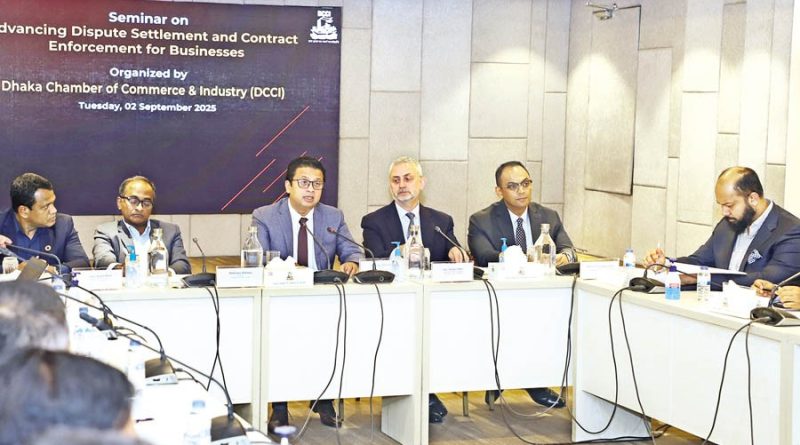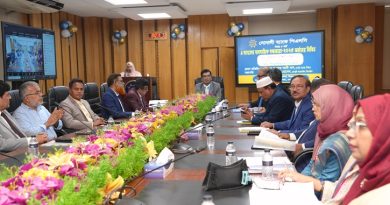Prolonged delays in resolving business-related disputes are undermining both domestic and foreign investment in Bangladesh, experts warned at a seminar organised by the Dhaka Chamber of Commerce and Industry (DCCI) on Tuesday.
DCCI President Taskeen Ahmed highlighted that around 4 million business-related cases remain pending in lower and higher courts. “Lengthy judicial processes are discouraging investors, and the 2001 Arbitration Act remains poorly implemented,” he said, urging the establishment of a Commercial Court with experienced judges to expedite dispute resolution.
Commerce Secretary Mahbubur Rahman said the country’s dense population contributes to rising court cases and stressed that alternative dispute resolution could ease pressure on courts and improve the investment climate. He confirmed that plans to establish a Commercial Court are underway, with a draft expected within a month.
European Union Ambassador Michael Miller noted that robust commercial courts and arbitration mechanisms are essential for attracting foreign investment, particularly as Bangladesh approaches LDC graduation and seeks export diversification.
Md Abdur Rahim Khan, vice chairman of the Export Promotion Bureau, warned that delays in trade dispute resolution hinder FDI and export growth, causing Bangladesh to lose competitiveness in global markets.
Speakers also cited poor contract enforcement rankings — 189th out of 190 countries in the World Bank’s Doing Business Report — and a 44.4/100 score in B-READY 2024 on dispute resolution. Around 25,000 financial loan court cases remain pending as of March 2025.
Md Ariful Hoque of BIDA emphasised that legal reforms alone are insufficient without strong institutional frameworks, while KAM Majedur Rahman of BIAC described delays as a serious concern for trade.
Vikna Rajah, co-head of South Asia Desk at Singapore’s Rajah & Tann, urged Bangladesh to follow Singapore’s model of specialised commercial courts and arbitration mechanisms to attract foreign investment.
Judge Tareque Muajjem Hussain stressed appointing experienced judges specialised in commercial disputes and providing them proper training for faster resolution.
The seminar concluded with stakeholders underscoring the need for better inter-ministerial coordination to resolve trade disputes efficiently.






